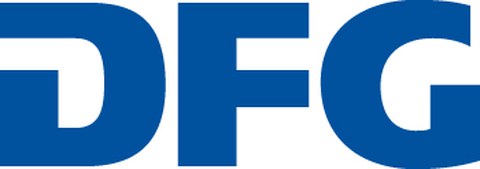Guidelines for Good Scientific Practice at TU Dresden
Table of contents
DFG guidelines
The German Research Foundation’s (DFG) Guidelines for Safeguarding Good Research Practice
The German Research Foundation’s (DFG) Guidelines for Safeguarding Good Research Practice Code of Conduct was approved by the DFG's General Assembly on July 3, 2019, and entered into force on August 1, 2019. As such, it replaces the previous white paper, Safeguarding Good Scientific Practice, which was first published in 1998, then supplemented and updated in 2013.
The aim of the Code of Conduct is to embed a culture of research integrity in the German academic landscape. The 19 guidelines describe appropriate standards for research supplemented by practice-oriented explanations. Universities and non-university research institutions are required to implement these guidelines to be eligible to receive DFG funding.
German Research Ombudsman
The “Research Ombudsman [appointed by the DFG] may be approached by all researchers, directly and independently of any connection with the DFG, for advice and support in matters relating to good scientific practice and its abuse due to lack of integrity” (German Research Foundation, 2019). This applies in particular to advising individuals who have reported suspected cases of scientific misconduct and are thereby susceptible to sanctions by other institutions.
More information on the Research Ombudsman
TU Dresden Guidelines
Statutes for Ensuring Good Scientific Practice, Avoiding Scientific Misconduct, and Handling Violations
TU Dresden has issued Statutes for Ensuring Good Scientific Practice, Avoiding Scientific Misconduct, and Handling Violations. All members and staff of TU Dresden are obliged to follow these statutes, to make them the basis of their research work and to actively contribute to the prevention of academic misconduct within their sphere of activity.
Guidelines for handling research data
A large amount of data is generated in the course of the scientific process. This data could be generated by both qualitative and quantitative research, e.g. through interviews, surveys, experiments or observations, and can exist in analog or digital form, for instance as text documents, spreadsheets, logbooks, questionnaires, audio and video recordings, samples, collections, database content or meeting minutes. Long-term archiving of research data is a prerequisite for the traceability of scientific results. In addition, the data obtained is of interest for possible subsequent use. Most importantly, this enables new knowledge to be gained. At the same time, the reuse of the data increases acknowledgment of the scientific work.
In order to specify how to handle research data in general, i.e. extending beyond primary data, TU Dresden has decided on Guidelines on the handling of research data at TU Dresden.
More information on the Service Center Research Data
Artificial Intelligence
TU Dresden adheres to theDFG’s statement from 2023 on the responsible use of AI tools in academia, which is also pertinent to funding under DFG programs. With regard to doctoral theses, explicit reference is made to Appendix 2 of the doctoral regulations, which stipulates that all aids must be clearly identified and stated. AI is considered an aid and must therefore be labeled as such. This provision is only included in the newly issued doctoral regulations. Older regulations may also contain provisions on the use of aids. In such cases, please contact your Doctoral Committee if you have any questions and, for reasons of transparency, always indicate any aids you have used. Additional information on the use of AI in student theses can be found on the web pages on the use of AI at TU Dresden.
Authorship of publications
The authors of an original scientific publication shall be only all those who have contributed substantially to the conception of the studies or experiments, to the preparation, analysis, and interpretation of the data, and to the formulation of the manuscript itself, and who have consented to its publication, i.e., have shared responsibility for it.
Therefore, to justify authorship, other contributions by themselves are not sufficient, such as:
- Merely organizational responsibility for obtaining funding
- Provision of standard materials for examination or analysis
- Instruction of staff in standard methods
- Merely technical assistance in the collection of data
- Merely technical support, for example mere provision of equipment, laboratory animals
- Regular, mere surrender of data records
- Merely reading the manuscript without substantially participating in shaping the content
- Management of an institution or organizational unit in which the publication originated.
This type of support can be appropriately acknowledged in footnotes or in the preface.
Likewise, according to general opinion, an "honorary authorship" is not permissible.
Similarly, neither the position as an institute director and supervisor nor as a former supervisor alone justifies co-authorship.

